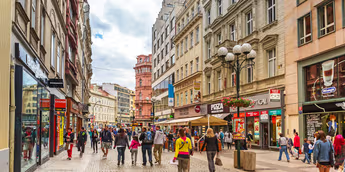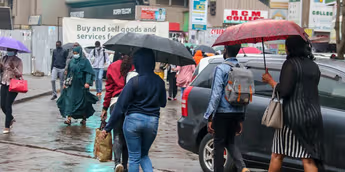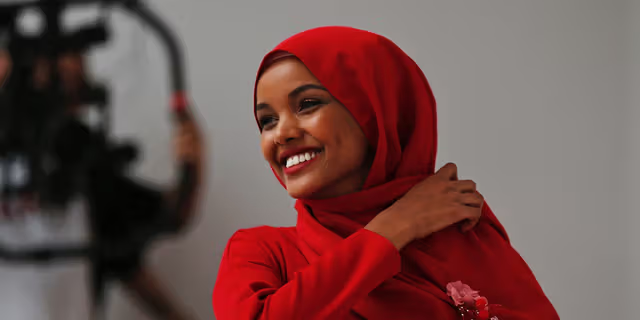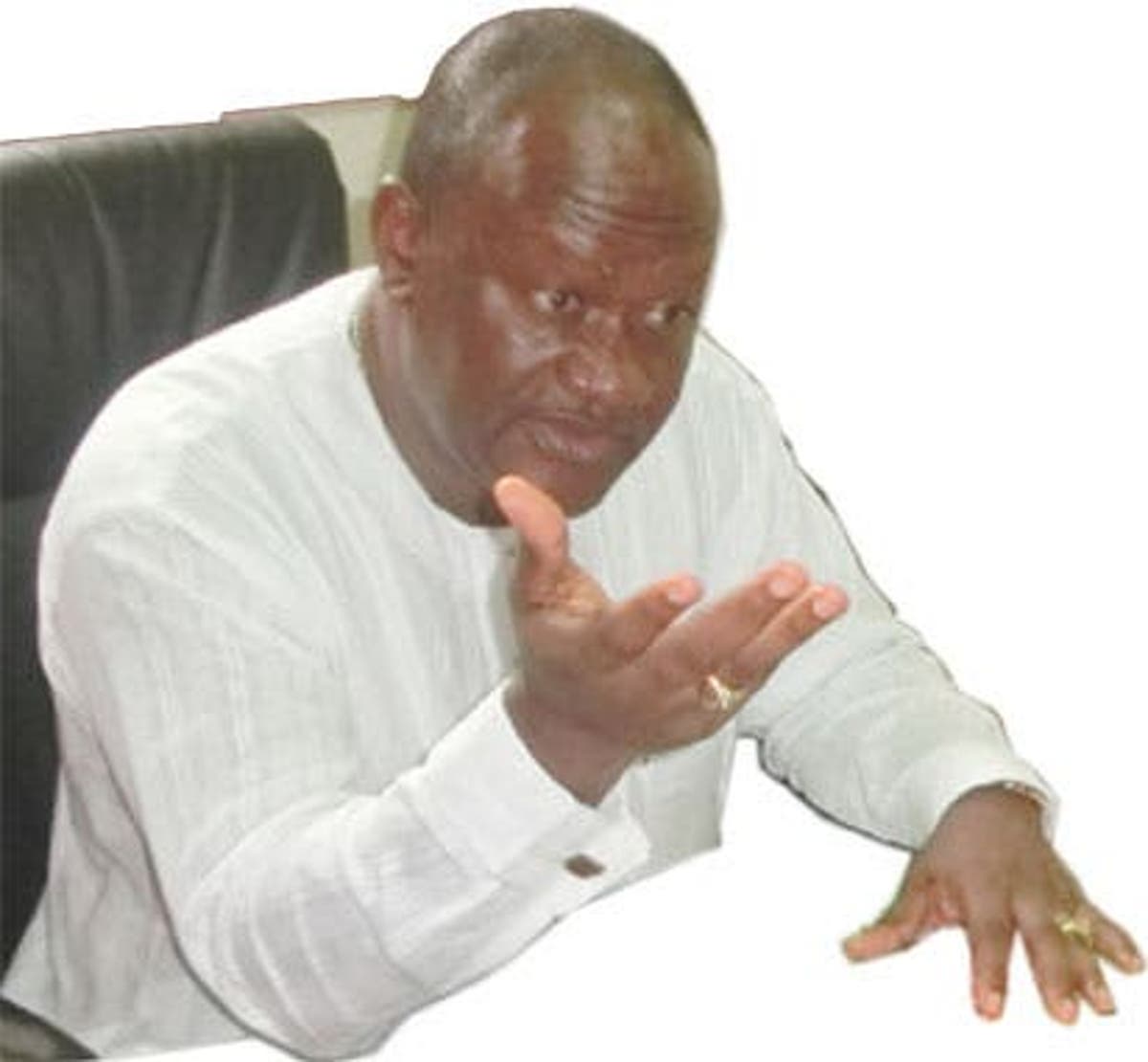Nigeria as a country is not doing too well in the area of paying attention to the needs of children living with intellectual disability. In this exclusive interview with Olabisi Deji-Foluitle, AVM FEMI GBADEBO, who is also the founder of Benola Initiative, suggests the way forward for both the government and the private sector.
Benola, your cerebral palsy initiative, has been a strong advocate of support for intellectually challenged children, how did it all start for you?
We have a young man, Olaoluwa, born in 1996, who has cerebral palsy. He’s non-verbal and fully dependent. The experience was initially quite traumatic and for the first 12 years of his life my wife, Alaba, had to manage him alone because I was always on duty away from home. But there were times when we travelled together, like when I went on overseas courses to Germany, India and the United Kingdom when we went together. In 2006, I was able to position Olaoluwa and his mum in London for about three years and it was a wonderful experience because he benefited from their support system for children with special needs in the form of healthcare and social amenities like medication, diapers, a specialised bed, wheelchair etc, while the family bore the full cost of their stay (Accommodation, feeding, etc) in the UK. As a result, my wife who did not see how I could cope on my own after my retirement in June 2008, chose to relocate to Nigeria in December that year.
At a point, he developed a severe case of scoliosis, a distortion of the spinal cord which was threatening to collapse his right lung, and we had to go to India for surgery where we stayed in hospital for about four months due to other complications. All these experiences put together, along with my own personal experiences as a Military Officer, Fighter Pilot, Instructor Pilot and Directing Staff at various Military Training Institutions during which I was involved in a couple of plane and automobile accidents, where on a couple of occasions I had to spend close to one year in Physiotherapy, resulted in a situation where, after my retirement in 2008, I was not interested in taking up paid employment. Not that I had enough to live on, I just wanted to be at home or close to home where I could contribute my quota to caring for Olaoluwa. Therefore, I considered running my own consultancy agency or taking up teaching because I taught at Defence College. It was while contemplating these ideas that some friends convinced me to attend a management course at Lagos Business School (LBS).
READ ALSO: Federal Government announces commencement of WAEC exams
During my six-month training at LBS, I learnt a lot about financial management, something that I wish I had known while holding sensitive appointments in the Military. In fact I think it is this lack of knowledge that results in situations where Chief Executive Officers (CEOs) and their finance officers tend to maintain a strangle hold on the finances of Institutions which they head, resulting in the web of corruption which we see all around us. In other words, without the connivance of both their Finance commissioner and State Accountant-General, no Governor can succeed in stealing public funds. Another thing that I learnt at LBS, is branding. You see, your idea can be a brand, but it is only when you succeed to turn it or yourself into a brand, that you can begin to market it. At that time also, Climate Change was a big thing and some of my friends started pushing me to form an NGO, which was not something I wanted to do because to me, most NGO’s in Nigeria seemed to be anti-government and my background (Military) detests anything anti-government. I also knew from experience that parents of children with cerebral palsy were desperately in need of Homes where they could place their children for either full time or part time care which is not what I and my wife were suited for. We also knew from experience that children with CP thrive better in a home environment where there is love and affection.
I have always known that the best way to change something is to talk about it-identify a gap, figure out how it could be solved and recommend a solution. So, I decided to form an initiative. Please note that a Foundation means you fund and wish to support change in the community while an initiative is a body that pushes for innovative ways to bring about change. Towards this end and in the past eight years, we have been changing the face of cerebral palsy and disability management one step at a time. In the process, we have designed two centres for cerebral palsy management. At first, we expected others to join us, but we soon found out that CP parents are not yet willing to come out publicly and sadly the fathers are not just there for their children.
The first three years of running Benola was tough. My most vocal critics were women running similar NGOs, particularly those dealing with cerebral palsy. Maybe it was because we were giving out free information while they were charging for everything and offering services that were shrouded in secrecy. At Benola, everything we do is free in the sense that the beneficiary does not pay. Schools for intellectually challenged children are expensive. Government and the private sector should sponsor some people to go there.
READ ALSO: Private universities approved for postgraduate programmes in Nigeria
We are the first NGO to identify the number of cerebral palsy children in Nigeria. We did this through a lot of academic work which we conducted at the initial stage. To building in-house-capacity, we organised CP focused workshops and conferences where, with the help of an Abuja based Disability Consultant, we brought in experts in disability management, special education from as far as Abuja, Calabar, Enugu, Jos, Kaduna and Lagos to discuss about cerebral palsy in Nigeria. My wife and I were the only CP parents in those initial meetings, but subsequently we brought in more parents in order to get their views because there are lots of ways that information can help in situations like this. For example, it was only six months after starting Benola when Olaoluwa was already 16 years old, that my wife and I got to know that some cerebral palsy children can go to school. Maybe if we knew that much earlier, we could have tried home schooling for Olaoluwa.
How will you describe the level of support for intellectually challenged children in Nigeria?
Support is not in existence. When we talk of children with disability, it is as if all we see are the vision impairment, those with missing limbs, spinal cord injury which mostly are results of road accidents and surgeries gone bad. Meanwhile, if one is able to take care of the psychological aspects of most of these challenges, the children are able to learn normally. Yes government buys wheel chairs, but that is only useful for people that can control their upper body. Issues like medication, therapies and requirements for daily living also need attention.
What should government be doing to help children that have challenges in learning?
Government should establish early intervention centres. For now, government is not thinking about these children. We need toilets and changing rooms for them, especially the adults among them. It is our failure to provide access and conveniences for them that has resulted in a situation where we hardly see disabled people and families in public places. Nobody sees the need to take care of them. Even when government and private sector organisations were giving out Covic-19 palliatives recently, nobody thought of families of children or adults with disabilities. So you see, we still have a long way to go. The children are missing a lot. Most Autistic children are very brilliant, while as much as 65 per cent of cerebral palsy children have proven to be exceptionally brilliant.
READ ALSO: Auditor-General uncovers fraud in Nigeria Law School’s financial records
You are a key member of the Aleph Education and Empowerment Foundation, how far has the journey been for the foundation?
The person that came up with the vision for Aleph Foundation is Mr Dare Daniel. The objective is to focus only on children with learning disability, draw government and private sector’s attention to the capabilities of these children and to seek ways for them to be gainfully employed after their education. Experience has shown that the best carers are those who are generally slow and they are usually very caring. The initial vision of Aleph was to help parents of children with learning disabilities by facilitating the further education of those of their children who complete secondary education in Nigeria into Beacon College, a one-of-its-kind Graduate School in Florida, USA where specialised graduate education is provided. However, because the fees at Beacon College are rather high, the decision was taken to consider establishing a similar institution here in Nigeria.
Discussion is ongoing with some individuals/institutions that have facilities that can be used for this. The plan is for them to provide hostel facilities and classrooms for special needs educational students while we bring in experts from Beacon College, to first train our teachers and later set up us up. Getting the initial capital for this has been a challenge, particularly because of the slow -down in the economy due to the Covid-19, but hope is not lost. We are also in discussion with some universities, looking into how we can collaborate with their special education department. We are looking for people who can donate towards the cause and to get such people, you need connection. The vision of Aleph is a noble one for it to become reality we need well-meaning Nigerians to come on board and collaborate, donate and help share what the foundation is out to achieve.
Your son, the face of Benola, turned 24 recently. How has the journey been, what has living with your son taught you?
Living with my son has taught me a lot about life, tolerance, coping with pain. I also had a lot of accidents in my career, plane crash. On two occasions, I spent more than 9 months in physiotherapy, so I know what it means to go through pain. I have seen my son go through excruciating pains, like when he was recovering through spine surgery and tendon release on four limbs simultaneously. At that time, he could only lay on his side for close to nine months. Before then, for close to nine years, he could only lie on his chest until he had a surgery in India to correct his scoliosis. He was always coming down with malaria, having pneumonia, always sick, because the mosquitoes were feasting on him and he couldn’t do anything to ward them off. There are painful procedures he has to go through from time to time, you know, he is feeling pains, but he bears the pain and understands that we are only trying to help him.
READ ALSO: Retired Air Force chief urges intervention centres for Nigeria’s intellectually challenged children
Why do you think most men abandon their intellectually challenged children to their wives?
We live in a male dominated society. People believe men are macho. When some of them have female children, they think they are less men and the way they rejoice when they have male children will give you the impression that it is the sign of their masculinity. You see them paying so much attention to the boys. I think this is the reason why when a child has disability, such men cannot deal with it. They believe the children cannot be from them. Members of the man’s family also do not help the matter as some of them carry that belief so as to even marry other wives for them with the belief that the new wife give birth to healthier children for their son or brother. I personally think it has to do with the way we raise our boys where we tell them that men don’t cry, so most boys grow to be men who brag about their manly achievements, while only a few of them ever share their pains. When women who are married to such men give birth to disabled children, doubts arise about the true paternity of the child and such men who are afraid of a repeat of the situation tend avoid being intimate with their wives. Of course, it doesn’t help matters that some of the women also blame themselves. As a result, intimacy dies and before long, the men get involved in extra marital affairs and if other women should give birth to ‘normal’ children, the man would beat his chest and re-assures himself that indeed, he is a man. Religious organisations and traditional institutions are also not helping the matter as some still believe that children with special needs are demonic.
What’s your message to parents of intellectually challenged children?
Parents should seek early intervention. When parents run around seeking help, particularly the spiritual type, for their special children, they miss out on the benefits of early intervention. Therefore, it is highly recommended that they get counsellors who will help them to better understand the real issues about their child’s condition. Doctors abroad can tell from the womb if a child is either disabled or likely to suffer complications after birth and help parents to prepare for the journey ahead which is not about fixing the child, but preparing them for early intervention. As a rule, children with special needs are happy children so, if you happen to see a disabled child that is not happy, it is a sign that something is wrong in that home. Parents should learn to accept their special needs children as gifts from God. They should also understand that, because every child can learn, some just learn differently, they should stop emphasising what their children cannot do and instead, concentrate on what they can do.
READ ALSO: EXCLUSIVE: Nigerian government spends N13.1bn to feed pupils at home, votes N7.5bn for research
What policies will you like to be put in place in Nigeria’s educational system to take care of intellectually challenged children?
The government and the private sector should establish early intervention centres to take care of intellectually disadvantaged children in Nigeria. The country has special schools for the blind, the deaf and other physical disabilities but only private people are running schools for children with learning difficulties, cerebral palsy and other mental conditions that can slow down the learning process in children. There must be recognition of the intellectually disabled children and teachers should be trained to manage these children. This should be done centrally with an approved curriculum. Anyone could run a programme, but when it is controlled by government, it is more recognised. Government should recognise that there is a problem and the potential in these children is awesome. There are stories of many of them that have displayed rare talents and are world renown. We should pursue serious things.






















